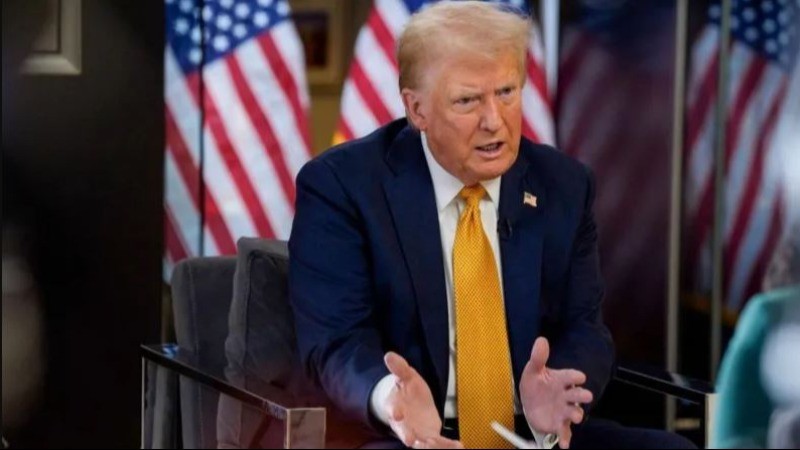
Washington – The U.S President-elect Donald Trump has reignited his campaign promise to terminate birthright citizenship in the United States, aiming to reshape the nation’s immigration policies and tighten control over southern border crossings.
Birthright citizenship, enshrined in the 14th Amendment, grants U.S. citizenship to anyone born within the country’s borders, regardless of their parents’ legal status. This constitutional right, which has been in place for over a century, applies to children of undocumented immigrants, those on temporary visas, and others. Trump has vowed to end this practice if he assumes office again.
This initiative adds to his list of bold proposals, including mass deportations, stricter asylum measures, and efforts to reduce unauthorized border crossings. Over the weekend, in an interview on "Meet the Press," Trump reiterated his commitment to this controversial policy change.
“We are going to have to get it changed. We will perhaps have to go back to the people. But we have to end it,” Donald Trump said.
While Trump proposed using an executive order to halt birthright citizenship, he acknowledged the significant legal challenges this approach would face, potentially escalating to the Supreme Court. “If we can, through executive action. I was going to do it through executive action, but then we had to fix COVID first, to be honest with you. We have to end it. It’s ridiculous,” he said.
Concerns Over “Birth Tourism”
Supporters of restricting birthright citizenship argue it incentivizes "birth tourism," where pregnant women enter the United States to give birth, securing citizenship for their kids. However, the prevalence of this practice remains unclear. A 2020 study estimated around 33,000 births annually to women on tourist visas, but this finding has been debated.
Critics counter that birth tourism and "anchor babies" are exaggerated issues. Ernesto Casteñeda, director of the Immigration Lab at American University, said, “This would not be a disincentive to immigrate, especially in the context of armed conflict or escaping persecution. Anchor babies are exaggerated as an incentive, and that process takes decades.”
Legal and Constitutional Hurdles
Most legal experts agree that altering the 14th Amendment via executive order is nearly impossible. Courts are unlikely to uphold such an order, and any attempt would face a barrage of lawsuits.
"If Trump issues an executive order to deny birthright citizenship, it should be struck down as a clear violation of the Fourteenth Amendment,” said an immigration law expert, Rachel Rosenbloom, at Northeastern University.
Some Republicans in Congress, including Sen. Mike Lee of Utah, have proposed redefining what it means to be “born in the U.S.” under the 14th Amendment. Lee suggested Congress could pass a law excluding children of undocumented immigrants from automatic citizenship.
Legal experts believe this interpretation of the law is incorrect. "Anyone governed by U.S. laws is inherently under U.S. jurisdiction. Unless you claim that the children of undocumented immigrants are exempt from U.S. laws, it’s difficult to argue they are not subject to U.S. jurisdiction,” explained Rosenbloom.
Amending the Constitution
To permanently end birthright citizenship, Congress would need to amend the Constitution—a process requiring a two-thirds majority in both chambers and ratification by three-fourths of state legislatures. This monumental task has only succeeded once in U.S. history.
Despite these hurdles, Sen. Lindsey Graham of South Carolina expressed support for a constitutional amendment. “I believe legal immigration is important to our economy and future. However, birthright citizenship and birth tourism are magnets for illegal immigration and cheapen American citizenship. I look forward to working with President Trump to end this disastrous policy once and for all,” Graham wrote on X.
The push to end birthright citizenship underscores the divisive nature of U.S. immigration policy. While proponents argue it would deter illegal immigration, critics warn it could undermine fundamental constitutional protections and lead to prolonged legal battles.
MORE TO READ.....